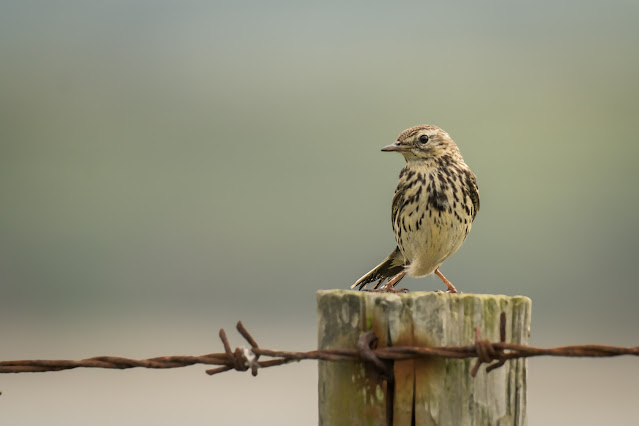Therapeutic Thrushes: Pet Birds As Therapy Animals

Pet Birds As Therapy Animals: Have you ever considered the potential benefits of incorporating therapeutic thrushes into your life? These remarkable pet birds can provide comfort and emotional support to individuals with psychological or emotional disabilities. From their empathetic nature to their sensitive understanding of stress and distress, these birds have proven to be excellent candidates for therapy animals.
But what exactly makes them so effective in this role? In this discussion, we will explore the various ways in which pet birds can positively impact our well-being and delve into the techniques used to train and bond with these remarkable creatures. So, let’s embark on a journey into the world of therapeutic thrushes and discover how they can contribute to our overall emotional and mental health.
The Benefits of Pet Birds in Therapy
Pet birds in therapy offer a myriad of benefits, ranging from emotional support to reducing anxiety and depression. These therapy animals, particularly parrots, possess an empathetic and sensitive nature that allows them to sense and alleviate stress, tension, anger, and distress in their owners. With proper training, these birds can utilize their abilities to provide comfort and emotional support to individuals with psychological or emotional disabilities.
The therapeutic effects of interacting with pet birds, such as macaws and cockatiels, have been observed in various settings, including therapy, prison rehabilitation programs, and nursing homes. These birds have the power to lower anxiety and depression, reduce feelings of loneliness, and aid sufferers of chronic illnesses and post-traumatic stress disorder (PTSD). In fact, therapy birds have been proven to be as effective as therapy dogs in providing emotional support.
It is important to note that individuals with therapy birds are protected by state and local regulations. They have rights, similar to those with therapy dogs, which may entitle them to reasonable accommodations in the workplace and housing under the Americans with Disabilities Act (ADA) and the Fair Housing Act.
The unique bond between therapy birds and their owners can have a profound impact on mental health. The presence of these birds can create a calming and nurturing environment, promoting emotional well-being and reducing the symptoms of anxiety and depression. The companionship and unconditional love provided by therapy birds can also help individuals feel less isolated and more connected to the world around them.
Types of Pet Birds for Emotional Support
Looking for a pet bird to provide emotional support? There are a variety of popular options that can bring comfort and companionship into your life. Some of the best birds for therapy include parrots, macaws, cockatiels, and conures. These birds possess empathetic traits and are known for their ability to sense and respond to their owners’ emotions, making them ideal companions for individuals in need of emotional support.
Popular Emotional Support Birds
Parrots, cockatiels, macaws, conures, and canaries are popular choices for individuals seeking emotional support birds due to their empathetic and therapeutic qualities. These birds have a natural ability to sense and respond to human emotions, providing comfort and companionship to their owners. Parrots, known for their empathetic and sensitive nature, make excellent emotional support animals, offering a deep connection and understanding. Cockatiels, on the other hand, have the unique ability to sense stress and distress in their owners, offering comfort and emotional support during difficult times.
Macaws, often used in therapy and rehabilitation programs, provide long-lasting therapeutic benefits through their engaging personalities and interactive nature. Conures, with their affectionate and loving temperament, are great for individuals needing emotional support and companionship. Lastly, canaries, with their beautiful songs, can provide emotional support and reduce feelings of loneliness. Whether it’s the comforting presence of a parrot or the soothing melody of a canary, these popular emotional support birds can truly make a difference in the lives of their owners.
Best Birds for Therapy
When seeking a therapy bird for emotional support, it is important to consider the specific characteristics and qualities that can make a profound impact on your well-being. Therapy birds can come from different species, each with their own unique traits that make them suitable for providing emotional support. One popular choice is the conure, known for its affectionate nature.
Conures require attention and can provide companionship, making them great for individuals with Asperger’s or those seeking emotional support. Another therapy bird option is the parrot, which can help lower anxiety and depression, reduce loneliness, and aid chronic illness sufferers. These birds are highly trainable and can provide comfort and emotional support to their owners. Ultimately, the best therapy bird for you will depend on your specific needs and preferences.
Incorporating Pet Birds Into Treatment Plans
To enhance the effectiveness of treatment plans, incorporating pet birds can provide a unique and valuable therapeutic experience. Birds have a natural ability to bring joy, companionship, and a sense of calm to individuals undergoing treatment. The presence of a pet bird can create a soothing atmosphere and help alleviate stress and anxiety. Whether it’s a colorful parrot, a melodious canary, or a graceful cockatiel, pet birds offer a connection to nature and a source of comfort that can greatly enhance the healing process.
When incorporating pet birds into treatment plans, it is important to consider the specific needs and preferences of the individual. Some birds, like parrots, require more attention and interaction, making them ideal for individuals who are looking for an interactive pet that can provide companionship and stimulation. On the other hand, quieter and less demanding birds, such as finches or canaries, may be better suited for individuals who prefer a more peaceful and low-maintenance pet.
Birds can be integrated into treatment plans in various ways. For example, therapy sessions can be conducted in the presence of a pet bird, allowing individuals to benefit from their calming presence and the positive distraction they provide. Birds can also be incorporated into therapeutic activities such as art therapy, where individuals can observe and draw the birds, fostering creativity and relaxation.
Furthermore, caring for a pet bird can promote a sense of responsibility and routine, helping individuals develop a structured and purposeful daily routine. Feeding, cleaning, and interacting with the bird can provide a sense of accomplishment and purpose, which can be especially beneficial for individuals undergoing treatment for mental health conditions.
Incorporating pet birds into treatment plans offers a unique and therapeutic experience. Their presence can provide comfort, companionship, and a connection to nature, all of which contribute to the overall well-being and healing of individuals. By considering the specific needs and preferences of the individual, pet birds can be seamlessly integrated into treatment plans, enhancing their effectiveness and promoting positive outcomes.
Therapeutic Techniques With Pet Birds
Consider incorporating therapeutic techniques with pet birds to enhance the healing process and promote overall well-being. Pet birds have unique qualities that make them excellent therapy animals, and when used in conjunction with appropriate techniques, they can provide valuable support for individuals seeking emotional and physical healing.
One therapeutic technique with pet birds is called avian-assisted therapy. This approach involves using birds to help individuals improve their physical, cognitive, and emotional well-being. For example, interacting with a pet bird can help individuals develop fine motor skills through activities such as feeding, grooming, and training. Additionally, the calming presence of a pet bird can reduce stress and anxiety, promoting relaxation and emotional well-being.
Another technique is called avian-facilitated psychotherapy. This approach involves using pet birds as catalysts for therapeutic conversations and activities. The bird’s presence can create a safe and non-judgmental environment, allowing individuals to open up and express their thoughts and feelings more freely. Furthermore, the bird’s behaviors and interactions can serve as metaphors for the individual’s own experiences, providing valuable insights and promoting personal growth.
Furthermore, incorporating pet birds into mindfulness practices can be highly beneficial. The gentle chirping and rhythmic movements of a bird can help individuals focus their attention and achieve a state of mindfulness. By observing the bird’s behaviors and connecting with its natural rhythm, individuals can cultivate a sense of calmness and presence in the moment.
Pet Birds and Stress Reduction
Are you feeling overwhelmed by stress and in need of some relief? Look no further than the comforting presence of a pet bird. These empathetic creatures can sense and respond to your stress, offering a feathered relaxation aid like no other. Whether it’s the soothing melodies of a canary or the gentle companionship of a cockatiel, pet birds have been shown to provide a sense of calm and reduce anxiety, making them perfect companions for stress reduction.
Avian Anxiety Relief
Pet birds can play a vital role in alleviating anxiety and reducing stress for individuals in need of emotional support. Therapy birds, such as conures, have been proven to lower anxiety and depression, reduce feelings of loneliness, and enhance overall well-being. These empathetic and sensitive creatures can sense stress, tension, anger, and distress in their owners, making them ideal companions for individuals with psychological or emotional disabilities.
In fact, trained birds can be categorized as service animals under the Americans with Disabilities Act (ADA), offering individuals legal protections. It’s important to know your rights and assert your needs when it comes to therapy birds, as employers and landlords are required to consider reasonable accommodations under the ADA and Fair Housing Act. With their comforting presence and unique abilities, therapy birds provide a valuable source of anxiety relief and emotional support for those in need.
Feathered Relaxation Aid
With their intuitive nature and calming presence, pet birds offer a unique and effective way to reduce stress and promote relaxation. These feathered companions can sense stress, tension, and distress in their owners, making them excellent candidates for providing emotional support and companionship. Many bird species, such as macaws and cockatiels, are used in therapy and rehabilitation programs, where they prove to be valuable feathered relaxation aids.
Whether it’s through their soothing chirps, gentle movements, or simply their comforting presence, therapy birds like conures can help alleviate symptoms of anxiety and depression, offering a sense of calm and tranquility. Employers and landlords are required to provide reasonable accommodations for individuals with therapy birds, recognizing the positive impact these feathered friends have on mental well-being.
Pet Birds and Improved Mental Health
Experience the transformative power of pet birds as they bring joy, companionship, and a sense of calm to enhance your mental well-being. Pet birds have been shown to have beneficial effects on mental health, offering emotional support and comfort to individuals. Many people find that interacting with birds helps reduce feelings of loneliness and depression, providing a unique form of therapy and support.
Birds can be trained to assist individuals with psychological or emotional disabilities, offering a valuable source of companionship and comfort. Under the Americans with Disabilities Act (ADA) and the Fair Housing Act, employers and landlords are required to consider reasonable accommodations for individuals with therapy birds. This recognition of the therapeutic benefits of birds highlights their importance in improving mental health.
Certain bird species, such as conures, are known for their loving and affectionate nature. These birds make excellent companions for individuals who may benefit from emotional support animals. The presence of a bird can bring a sense of comfort and calm, providing a soothing presence in times of stress or anxiety.
Additionally, interacting with birds and nature, such as through birdwatching, has been associated with improved mental well-being. Spending time observing birds in their natural habitats can help reduce stress and anxiety, promoting a sense of peace and tranquility. The vibrant colors, melodious songs, and graceful movements of birds provide a welcome distraction from the pressures of daily life.
Pet Birds and Physical Well-being
Birds can have a significant impact on your physical well-being, providing unique benefits that contribute to overall health and vitality. As therapy animals, pet birds like parrots and cockatiels offer emotional support and comfort, which can help reduce feelings of anxiety and depression. But their positive effects go beyond just mental health. Birds have unique social aspects and can be trained to assist individuals with physical disabilities, making them excellent companions for those in need. For people with conditions like Asperger’s, birds like conures, known for their affectionate nature, can provide emotional support and companionship, enhancing their overall well-being.
It’s important to note that employers and landlords must consider reasonable accommodations for individuals with therapy birds under the Americans with Disabilities Act (ADA) and the Fair Housing Act. This recognition of the positive impact of birds on physical and mental health further emphasizes their importance as therapy animals.
Additionally, the soothing sounds of birdsongs and the act of birdwatching have been associated with improved mental well-being. These activities have been shown to reduce stress and anxiety, which can have a positive impact on your physical health. The connection to nature and the calmness that comes with observing birds in their natural habitat can promote relaxation and overall physical well-being.
Training and Bonding With Pet Birds
Now that you understand the positive impact pet birds can have on your physical and mental well-being, let’s explore the important aspects of training and bonding with these incredible animals. Training and bonding with pet birds is a rewarding and fulfilling experience that requires patience, time, and understanding.
When it comes to training, positive reinforcement is key. Birds respond well to rewards and praise, so it’s important to use these methods to encourage desired behaviors. Be patient and consistent in your training sessions, as birds need time to learn and adapt. By creating a routine and sticking to it, your pet bird will start to understand what is expected of them.
In addition to training, building a strong bond with your pet bird is essential. Spend quality time with them, socialize, and interact gently and positively. This will help establish trust and strengthen the bond between you. Pay attention to your bird’s body language and vocalizations, as they use these to communicate their needs and emotions. Understanding and respecting their cues will enable effective communication and enhance your relationship.
Considerations for Choosing a Therapy Bird
When choosing a therapy bird, it is important to consider several factors to ensure the best match for your specific needs and circumstances. Therapy animals play a vital role in providing comfort, companionship, and emotional support to individuals in various settings. Whether you are looking for a bird to assist with physical rehabilitation or to provide emotional support, there are a few key considerations to keep in mind.
Firstly, assess your living situation. Different bird species have different space requirements. For example, larger birds like macaws or cockatoos need spacious cages and ample room to spread their wings. Smaller birds like budgies or lovebirds may be more suitable for those with limited space. Additionally, noise levels should be taken into account, as some birds can be quite vocal.
Next, consider the level of interaction you desire. Some therapy birds are more hands-on and enjoy physical contact, while others prefer to observe from a distance. For individuals seeking tactile stimulation, a bird that enjoys being touched and held, such as a cockatiel or conure, may be a good fit. On the other hand, if you prefer a bird that is content with perching nearby and providing companionship, a finch or canary may be a better choice.
Lastly, think about the specific needs of the therapy recipient. Certain bird species are known for their ability to mimic speech, which can be beneficial for individuals with speech impairments or those undergoing speech therapy. For example, African grey parrots are renowned for their exceptional talking abilities. Additionally, consider the temperament and behavior of the bird. Some species may be more gentle and patient, making them well-suited for working with children or individuals with special needs.
Pet Birds As Therapy Animals Frequently Asked Questions
What Is the Best Bird for Therapy?
The best bird for therapy is the therapy parakeet. They are empathetic, and sensitive, and can provide comfort and emotional support. With their loving nature, they are great companions for individuals with psychological or emotional disabilities.
Can a Bird Be a Therapy Animal?
Yes, a bird can be a therapy animal. Feathered companions, like parrots, can sense and respond to your emotional needs, providing you with valuable emotional support. They can be a wonderful source of comfort and companionship.
What Birds Are Used for Animal Assisted Therapy?
Various species of birds, such as parrots, macaws, and cockatiels, are used in animal-assisted therapy programs. These birds can provide comfort and emotional support, reducing anxiety and depression. They are just as effective as therapy dogs in providing therapeutic benefits.
Are Pet Birds Good for Mental Health?
Yes, pet birds can be good for your mental health. Birds have a calming effect and can help reduce anxiety. They provide companionship, and emotional support, and can create a sense of peace and tranquility in your home.
Conclusion
In conclusion, incorporating pet birds into therapy programs can have numerous benefits for individuals with psychological or emotional disabilities. These empathetic and sensitive creatures can sense stress and provide comfort and emotional support. Interacting with pet birds can lead to long-lasting therapeutic effects, including reduced stress, improved mental health, and enhanced physical well-being. By training and bonding with these feathered companions, individuals can find solace and support in their journey toward healing and emotional well-being.








